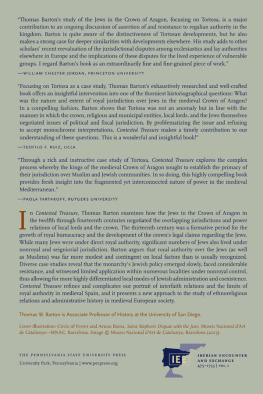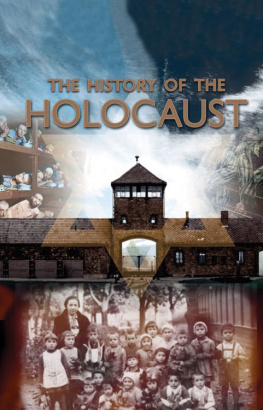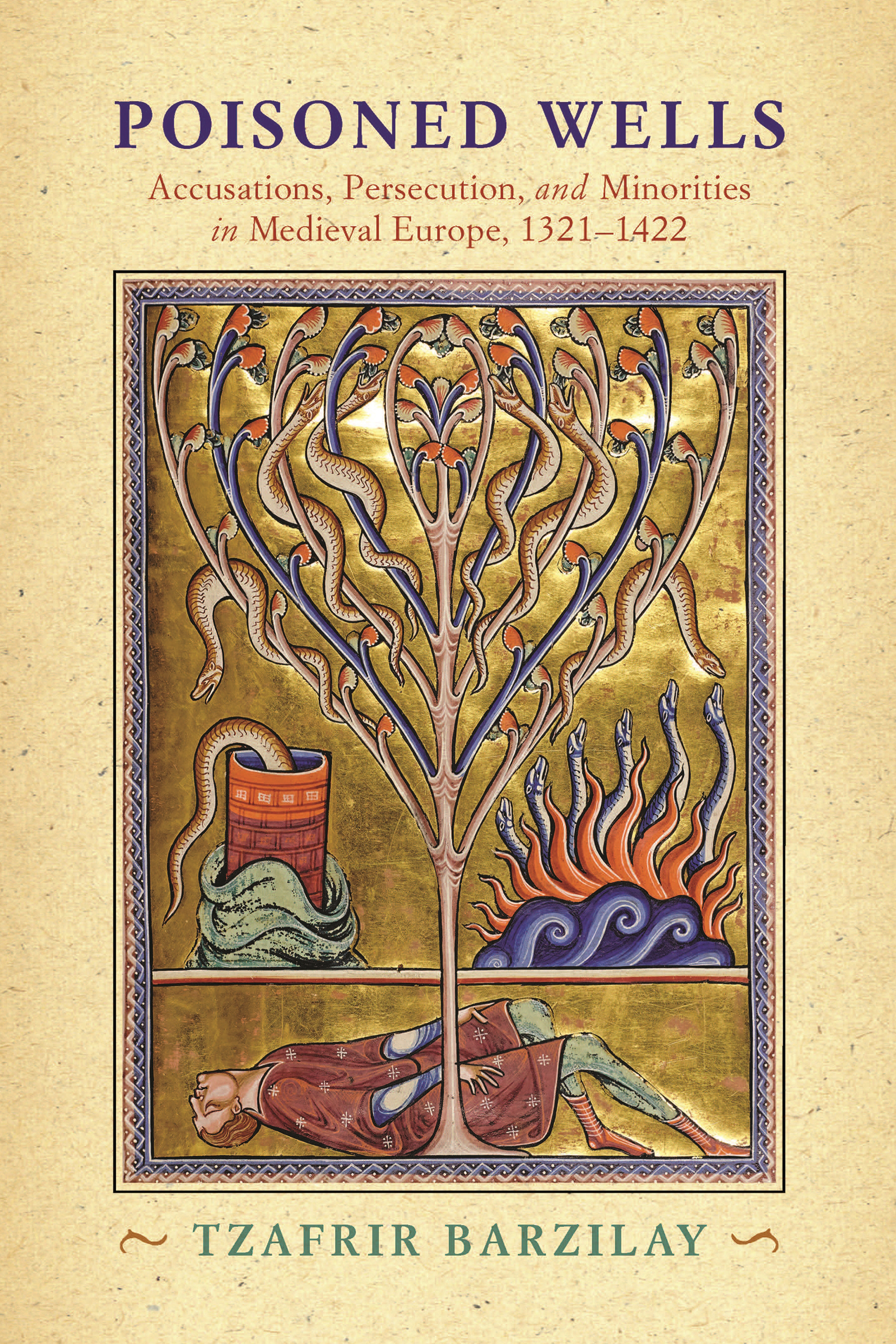Tzafrir Barzilay - Poisoned Wells: Accusations, Persecution, and Minorities in Medieval Europe, 1321-1422
Here you can read online Tzafrir Barzilay - Poisoned Wells: Accusations, Persecution, and Minorities in Medieval Europe, 1321-1422 full text of the book (entire story) in english for free. Download pdf and epub, get meaning, cover and reviews about this ebook. year: 2022, publisher: University of Pennsylvania Press, genre: Religion. Description of the work, (preface) as well as reviews are available. Best literature library LitArk.com created for fans of good reading and offers a wide selection of genres:
Romance novel
Science fiction
Adventure
Detective
Science
History
Home and family
Prose
Art
Politics
Computer
Non-fiction
Religion
Business
Children
Humor
Choose a favorite category and find really read worthwhile books. Enjoy immersion in the world of imagination, feel the emotions of the characters or learn something new for yourself, make an fascinating discovery.

- Book:Poisoned Wells: Accusations, Persecution, and Minorities in Medieval Europe, 1321-1422
- Author:
- Publisher:University of Pennsylvania Press
- Genre:
- Year:2022
- Rating:4 / 5
- Favourites:Add to favourites
- Your mark:
Poisoned Wells: Accusations, Persecution, and Minorities in Medieval Europe, 1321-1422: summary, description and annotation
We offer to read an annotation, description, summary or preface (depends on what the author of the book "Poisoned Wells: Accusations, Persecution, and Minorities in Medieval Europe, 1321-1422" wrote himself). If you haven't found the necessary information about the book — write in the comments, we will try to find it.
Between 1348 and 1350, Jews throughout Europe were accused of having caused the spread of the Black Death by poisoning the wells from which the entire population drank. Hundreds if not thousands were executed from Aragon and southern France into the eastern regions of the German-speaking lands. But if the well-poisoning accusations against the Jews during these plague years are the most frequently cited of such cases, they were not unique. The first major wave of accusations came in France and Aragon in 1321, and it was lepers, not Jews, who were the initial targets. Local authorities, and especially municipal councils, promoted these charges so as to be able to seize the property of the leprosaria, Tzafrir Barzilay contends. The allegations eventually expanded to describe an international conspiracy organized by Muslims, and only then, after months of persecution of the lepers, did some nobles of central France implicate the Jews, convincing the king to expel them from the realm.
In Poisoned Wells Barzilay explores the origins of these charges of well poisoning, asks how the fear took root and moved across Europe, which groups it targeted, why it held in certain areas and not others, and why it waned in the fifteenth century. He argues that many of the social, political, and environmental factors that fed the rise of the mass poisoning accusations had already appeared during the thirteenth century, a period of increased urbanization, of criminal poisoning charges, and of the proliferation of medical texts on toxins. In studying the narratives that were presented to convince officials that certain groups committed well poisoning and the legal and bureaucratic mechanisms that moved rumors into officially accepted and prosecutable crimes, Barzilay has written a crucial chapter in the long history of the persecution of European minorities.
Tzafrir Barzilay: author's other books
Who wrote Poisoned Wells: Accusations, Persecution, and Minorities in Medieval Europe, 1321-1422? Find out the surname, the name of the author of the book and a list of all author's works by series.









